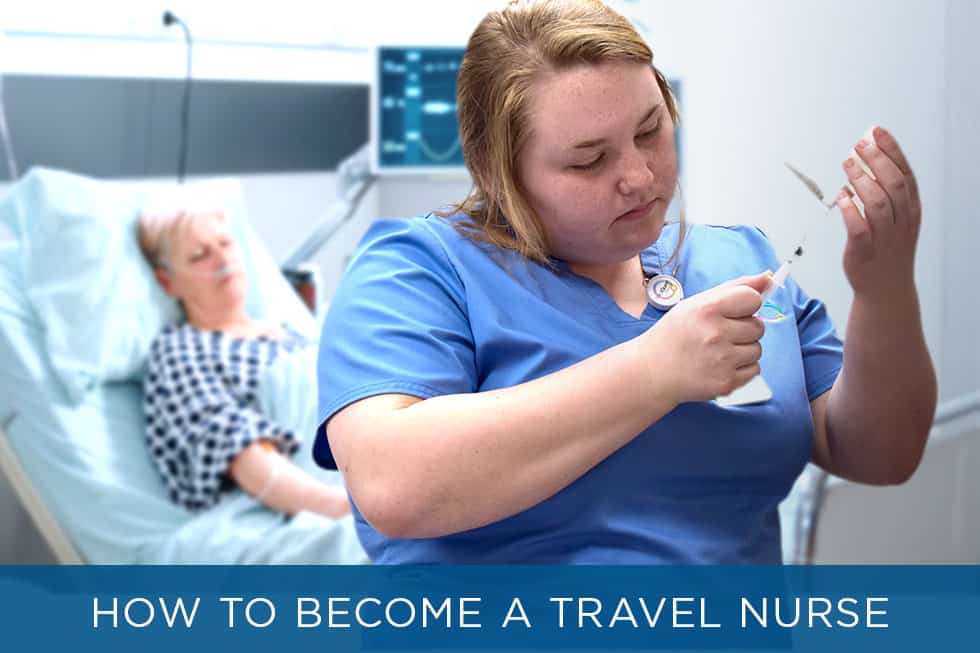If you’re considering a future in the nursing profession, this may be the path for you. To help you put a roadmap together for a future where you collect memories – one destination at a time, here’s a few tips on becoming a travel nurse. But first, let’s explore what being a travel nurse actually entails.
What is a Travel Nurse and What do They do?
Just like it sounds, travel nurses – travel. More specifically, they travel where they’re needed and provide quality nursing care to people in places where they may not have enough nursing resources. Travel nurses usually find work through agencies that specialize in travel nurse staffing. Their contracts are typically around 13 weeks but can range anywhere from 2 weeks to 26 weeks in length. You’ll find travel nurses performing the same duties practical nurses and registered nurses perform including:
- Maintain records of patients’ history
- Provide routine patient care
- Observe and document the patient’s health such as vital signs and overall condition
- Assisting doctors and registered nurses with tests or procedures
- Assemble, use, and sterilize medical equipment.
- Start IV drips or give injections
- Consulting with registered nurses on patient care plans
- Communicating with patients and their families
Benefits of a Career as a Travel Nurse
Sure, being a travel fan is a big plus for travel nurses, but there are other benefits to consider too. Here are some of those benefits:
Diverse Work Environments: Travel nurses work in many different settings and encounter a wide range of people from many cultures. This exposure to diverse healthcare environments not only broadens your skill set, it can also enhance your interpersonal skills, which can be highly beneficial to your future.
Earning Potential: The average annual salary for a travel nurse in 2023 was $105,011, while the average salary for registered nurses in general was $77,600. 28% more revenue has its benefits!
Flexible Schedule: When you’re a travel nurse, you get to decide what assignments to take and where to take them. The freedom and flexibility of a career in travel nursing is pretty hard to beat.
How to Become a Travel Nurse
Becoming a travel nurse starts with the same thing becoming any kind of nurse does. Getting a nursing education. Depending on the state, that typically requires one of three education paths: a bachelor’s degree in nursing, an associate degree in nursing, or a diploma from an approved nursing program. That means finding an accredited program to complete your training. It’s a good idea to check the state-specific requirements in the state or states you’re hoping to work in. Some travel nursing positions will also require specialized certifications, such as cardiopulmonary resuscitation (CPR), basic life support (BLS), or advanced cardiac life support (ACLS) certification.
Once you’ve completed your education and training requirements, you’ll need to take the NCLEX (National Council Licensure Examination) to become licensed in the field of nursing you’ve decided to pursue. Once you’ve passed your licensing exam, you can reach out to travel nursing agencies to find roles that are a match for your qualifications.
Life as a travel nurse is not likely to have many dull moments and it’s hard to imagine a more fulfilling way to earn a living. If you’d like to learn more about careers in the nursing profession, check out the Practical Nursing Program at MedQuest College. MedQuest is helping students get the hands-on training and skills they need to join the field of nursing. The accelerated 12-month diploma program can put you on the fast track to the future you always dreamed of. Contact us today to learn more!

